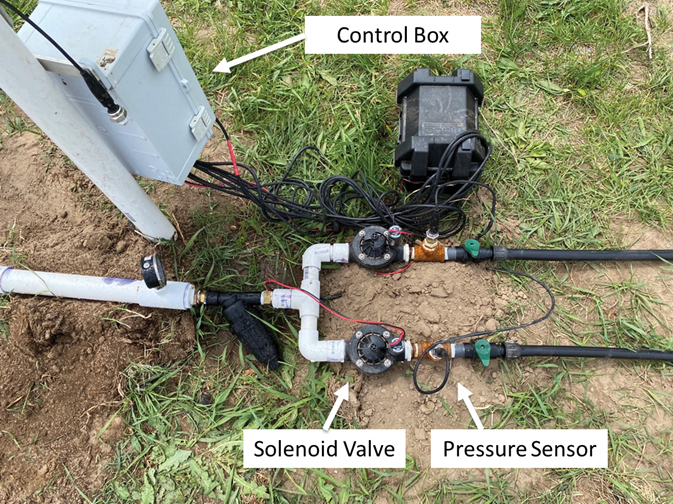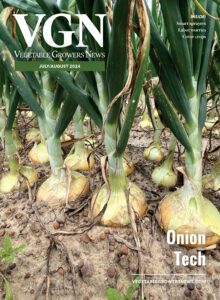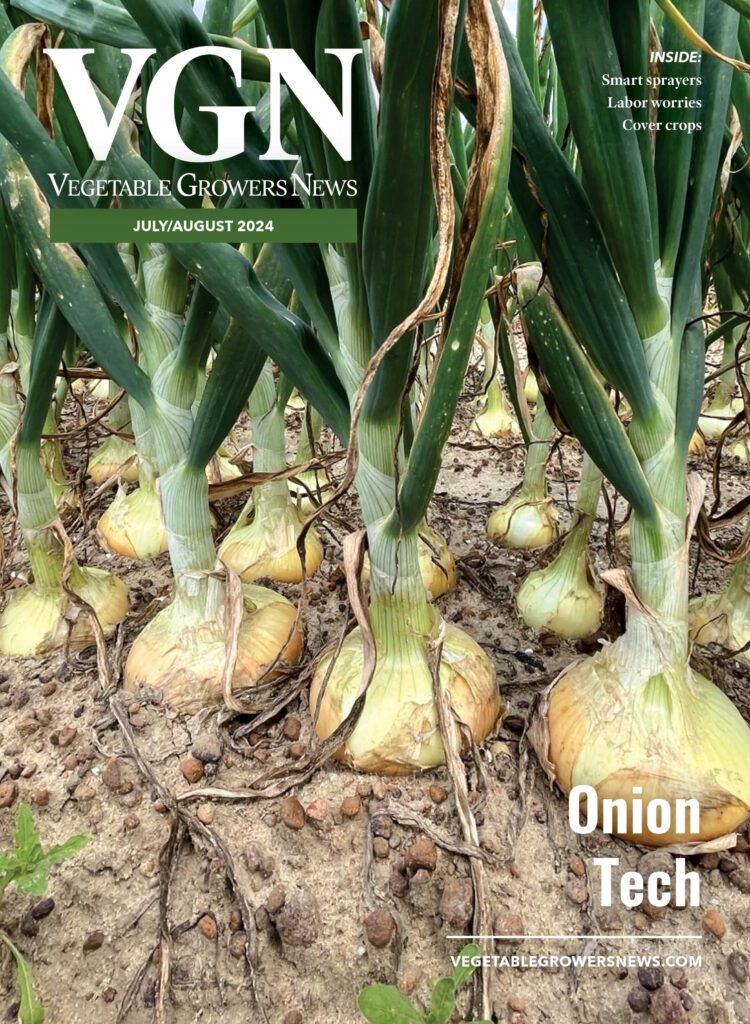Dec 20, 2023Consider automatic irrigation control systems
Many growers are interested in using an automatic irrigation controller to manage their irrigation system due to their potential benefits. Being able to turn an irrigation system on and off remotely or automatically can reduce farm labor and operation costs — and more importantly — save time.
Having someone drive to the field to operate an irrigation system may increase your input costs, including fuel, labor and mileage on your truck. In addition, automatic irrigation controllers can help with water conservation. An automatic irrigation controlling system can turn the system off when it rains and turn it
back on if the rain was not adequate. This allows growers to maximize the use of rain and use water responsibly.
The actual controlling mechanism of automatic irrigation systems consists of timers for turning on and off the system and feedback from soil moisture sensors, weather sensors and plant sensors.

When you use an automatic irrigation system, it is important to verify that the system is operating. This can be done by adding a water flow meter, water pressure sensors and/or in-field soil moisture sensors. This provides confidence in using the technology and ensures your crops do not experience under water stress.
Controlling irrigation systems remotely requires a reliable signal communication method. Many options are available: hard wires, cellular, Wi-Fi, LoRa (long range), radio signal, etc. Deciding on the communication method
depends on your field locations. Trees could be an issue when you create a localized network system using LoRa, Wi-Fi, and radio signals. It is worth noting that if you are using a cellular modem, you may need to upgrade it over
time as the old network types retire.
When choosing an automatic irrigation controlling system, you should consider field size, number of irrigation zones, number of controllers needed, signal communication methods, sensors (water pressure, water flow meter and in-field soil moisture sensors) and capital and operation costs. The cost of automatic irrigation systems may vary depending on the size of fields, irrigation zone design, and signal communication methods. Operation costs include the annual communication system subscription plan, maintenance on valves and sensors, and repairs.
The long-term advantages of the automatic irrigation controller system often justify its cost.


In addition to water savings, energy was also saved by reducing the pump operation time. This reduced energy use will result in decreased greenhouse gas emissions. The automatic irrigation controlling system offers great potential for farmers for reducing labor and operation costs, saving time, and increasing water and energy use efficiency.
— Younsuk Dong is an irrigation specialist in the Michigan State University (MSU) Department of Biosystems and Agricultural Engineering (BAE). Nawab Ali is a
postdoctoral research associate in the Department of BAE with a focus on estimating agricultural return flow and groundwater recharge. Lyndon Kelley is a 35-year veteran of MSU Extension, currently working toward goals of expanded irrigation opportunities, and better irrigation design and management, while protecting the environment.














